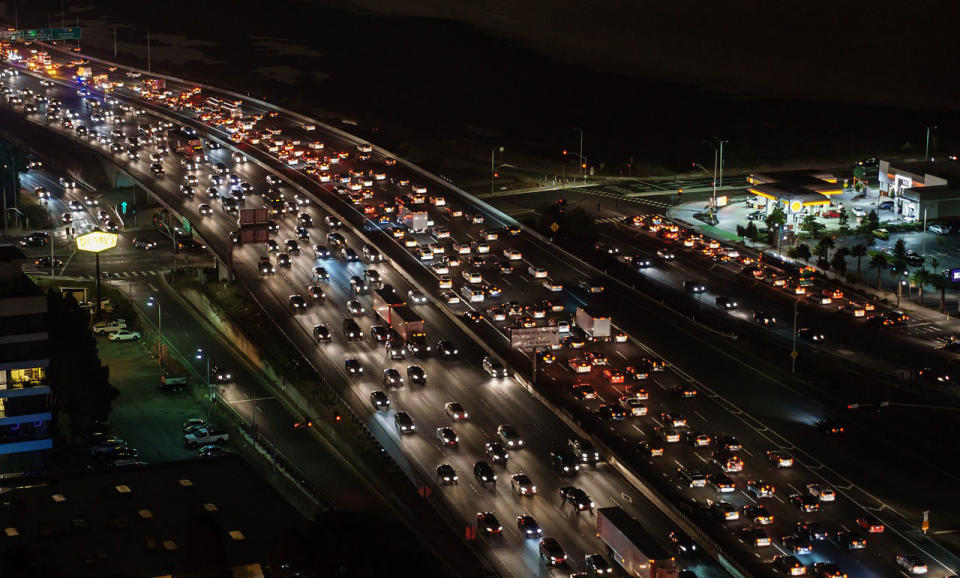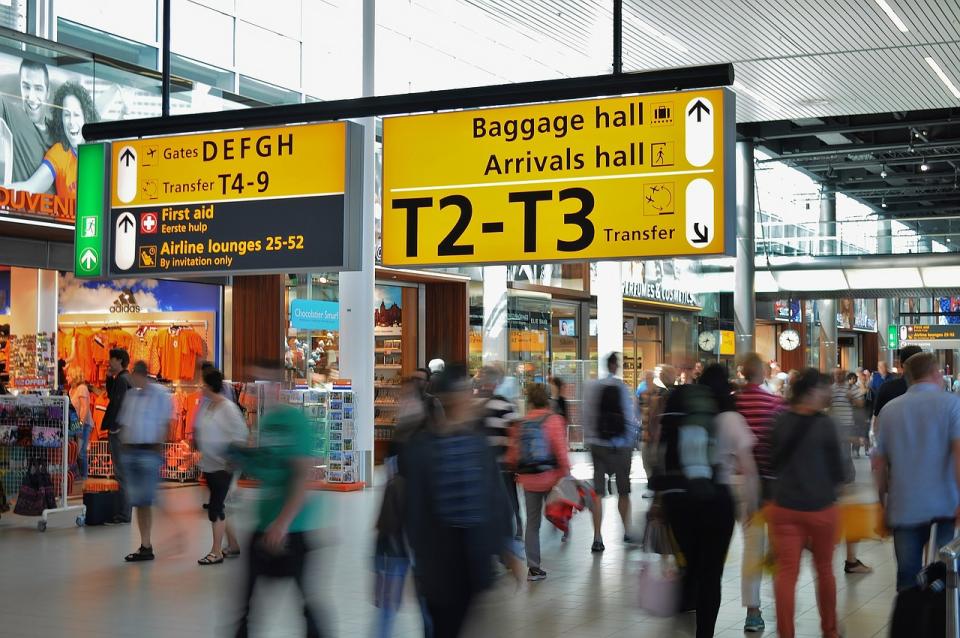3 Ways Holiday Travel Will Change with Self-Driving Cars

Self-driving cars are not yet available, but the technology is advancing and we're only decades away from humanless highways. With the holiday season upon us, let's consider the benefits autonomous vehicles will offer to holiday travel once they are widely available.
Maybe you regard the holidays with pure joy—an abundance of gatherings, reunions with friends and family, delicious food and thoughtful presents—but for those who stress over the mishaps and travel disasters, self-driving cars will help alleviate some of your holiday woes.
Autonomous vehicles are set to improve, challenge and innovate the way we travel. Here are 3 ways holiday travel will be altered once the technology arrives.
Reduced holiday traffic and more efficient trips
The nightmare of holiday traffic is, unfortunately, all too real. Average Americans waste 42 hours in traffic each year, and quite a few of those hours are likely accumulated during the busiest days on the road. The week of Thanksgiving, Christmas and New Year's are considered to be some of the most popular travel days of the year, with more than 90 percent of holiday travelers driving to their destinations by car. This year, the number of travelers will likely top 100 million if last year's statistics are any indication.
Perhaps, the most exciting perk of self-driving cars around the holidays will be the way they'll reduce, if not fully eliminate, holiday traffic. Instead of sitting bumper to bumper on congested highways, self-driving vehicles will be able to travel quickly. Not only will they be able to drive closer to the cars in front of them and at faster speeds, but they'll be able to operate in narrower lanes than what is currently needed for error-prone humans. This will increase the number of cars that can travel on the roads and allow for additional lanes and infrastructure to accommodate them.
Self-driving cars may even help you plan ahead for increased efficiency. Once the vehicle knows your destination—perhaps, you inputted the trip on your cellphone's calendar—it may suggest a different route based on the expected volume of vehicles on the road. The car could recommend that you leave a day earlier than planned to in order to avoid any traffic or undesirable weather. Today, that notion may pose a problem, but it will be less of an issue when you can travel and work remotely from the car's wifi. Additionally, if the autonomous vehicle suggests leaving overnight at 3 am for the fastest possible trip, you may happily accept the advice. You and your family will all be passengers and you'll be able to sleep in the car, travel safely and wake up at your destination.
The increased efficiency of automated vehicles will also allow you to spend more quality time at your travel destination and create more free time for you in the vehicle. You can use it to wrap those last-minute presents or to finish up work assignments before vacation.
Reduced flight and train travel
Many people choose to fly over driving long hours to visit family during the holidays. The reasoning is that a flight is often faster, even when you're forced to deal with long security lines, airport congestion and frustrating delays.
However, self-driving cars could be a game changer and airline travel may become less desirable as the new technology is adopted. With faster trip durations, less traffic and more free time, more people will use self-driving cars for holiday travel. Why pay more for an expensive flight when you can get to your destination comfortably in a self-driving car?
With autonomous vehicles, the cost of travel will likely decrease and more people may choose to forgo flights or train trips for a cheaper ride. While the cars may have a higher selling price at first—estimated to be $7,000 to $10,000 more than an average vehicle in 2025—the cost is expected to go down over time as their use becomes more widespread.
Automated cars also allow for point-to-point transportation. There's no need to travel to a bus or train station if you can be picked up right at your current location. Furthermore, even if you don't own a self-driving car in the future, you'll still be able to use one for holiday travel. Shared mobility is expected to grow in popularity as vehicle ownership decreases. You'll be able to pay per trip or rent an autonomous car. Conventional transit may also adapt and become automated which will offer you more price tier options.
With more automated travel, there will be no need to pack light, deal with delays or worry about whether your bottles are under 3 ounces. You can thank driverless cars for that.

Fewer accidents and traffic deaths
Last year the National Safety Council estimated a total of 307 deaths during the Christmas holiday period and 346 fatalities during the New Year's holiday period. That's not even counting the number of deaths or accidents that occur during the rest of December.
Why is the amount so high? The jump is mostly due to an increase in drunk driving at this time of year. During the Christmas and New Year's holidays, 40% of traffic fatalities involve a driver who is impaired by alcohol and 2 to 3 times more people die in alcohol-related crashes.
The good news is that self-driving cars can change these statistics for the better. They are expected to decrease accidents by 90% and that could lead to 300,000 saved lives each decade.
After holiday festivities, friends and family members will no longer have to drive themselves home. They can use self-driving vehicles and avoid putting anyone else on the road at risk. Furthermore, Mom and Dad can rest assured knowing that their kids will arrive home safely after any New Year's celebrations.
And it's not only drunk driving collisions that will decrease. There will be less overall accidents during the chaotic holiday season: no stress-induced crashes by rushing parents who are still thinking about what presents and baking goods are left to buy. There will be no more fender benders in grocery store or mall parking lots—cars will park themselves—and no more distracted or drowsy driving mistakes—go ahead and take a nap in the backseat.
Lower collisions during the winter season will also mean that insurance companies won't be forced to hike their rates after a season of slippery, snowy accidents. There will be fewer accidents overall, and that will save money and time for both providers and consumers.
Traveling during the holidays will be much more enjoyable once autonomous vehicles arrive— less stress, increased safety and more free time. The future of travel is coming and it sure is exciting. Now, if only we could have the technology for this year's holiday season.
Tomas Revesz is CTO and Co-Founder of EverQuote, the largest online auto insurance marketplace in the U.S.
